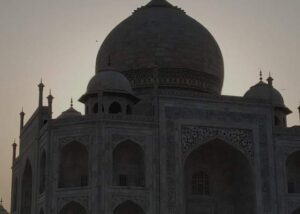Quran
Hadith
Islamic Text
بِسْمِ اللَّهِ الرَّحْمَنِ الرَّحِيمِ
In the Name of Allah Most Merciful Most Kind
Short Answer
The view of the Salaf on difference of opinion was to accept it when it was a valid difference of opinion. However, they would also reject invalid differences of opinion. For example, the extreme views of the Khawarij were rejected whereas the legal differences between Sahabah were accepted.
Hadith
النُّعْمَانَ بْنَ بَشِيرٍ، يَقُولُ: سَمِعْتُ رَسُولَ اللَّهِ صَلَّى اللهُ عَلَيْهِ وَسَلَّمَ يَقُولُ: الحَلاَلُ بَيِّنٌ، وَالحَرَامُ بَيِّنٌ، وَبَيْنَهُمَا مُشَبَّهَاتٌ لاَ يَعْلَمُهَا كَثِيرٌ مِنَ النَّاسِ (صحيح البخاري)
(Sayidina) Nu’man ibn Bashir said he heard the Messenger of Allah ﷺ say, ‘The Halal is clear and the Haram is clear, and between them are ambiguous matters. Most people do not know them.’ (Sahih al-Bukhari, 52).
In the Hadith narration above, the Prophet ﷺ makes it clear that there are ambiguous matters in our Deen (religion). Thus, it is not the case that every matter is clear and allows for no difference of opinion. Rather difference of opinion is inevitable regarding ambiguous matters. The Salaf (early Muslims) understood this. Therefore, the stance of the Salaf on difference of opinion was to respect it. This was as long as it was a valid difference.
Explanation
The Salaf are the early generations of this Ummah (nation). Often the term Salaf refers to the first three generations. They clearly understood that there are valid and invalid differences of opinion.
Further, they respected valid differences that occurred and opposed invalid opinions. For example, they respected the differences of opinion regarding jurisprudential matters that occurred between leading Sahabah. However, at the same time, they opposed the views of the Khawarij.
Umar bin Abd al-Aziz
عُمَرَ بْنَ عَبْدِ الْعَزِيزِ كَانَ يَقُولُ: مَا سرّنِي لَوْ أَنَّ أَصْحَابَ محمد صَلَّى اللَّهُ عَلَيْهِ وَسَلَّمَ لَمْ يَخْتَلِفُوا , لِأَنَّهُم لَوْ لَمْ يَخْتَلِفُوا لَمْ تَكُنْ رُخْصَةً. (المدخل إلى علم السنن)
(Sayidina) Umar bin Abdul Aziz used to say: I would not be pleased if the companions of Muhammad ﷺ had not disagreed. Because if they had not disagreed there would have been no dispensation (Rukhsah). (Imam Abu Bakr al-Bayhaqi, al-Madkhal).
In the Nass (text) above, we see how the great Khalifah Umar bin Abd al-Aziz was pleased with the fact that the Sahabah had differences. He explained that the source of his pleasure is the opportunity to provide dispensations. This was because it meant people can take different views. This inevitably makes things easier for them due to greater choice bringing about more ease. Consequently, this was the approach of the Salaf on difference of opinion.
Imam Malik and Imam Abu Hanifah
قال الليث: لقيت مالكاً بالمدينة فقلت له: إني أراك تمسح العرق عن جبينك. قال عرقت مع أبي حنيفة. إنه لفقيه يا مصري. ثم لقيت أبا حنيفة قلت: ما أحسن قول ذلك الرجل فيك. فقال: والله ما رأيت أسرع منه بجواب صادق وزهد تام. (ترتيب المدارك وتقريب المسالك)
(Imam) al-Layth said: I met Malik in al-Madinah and I said to him: I see that you are wiping sweat from your forehead. He said: I sweated with Abu Hanifah. Indeed, he is a jurist (Faqih), O Egyptian. Then I (al-Layth) met Abu Hanifah and said: How great is that man’s statement about you. He said: By Allah, I have never seen anyone as swift as him in providing a truthful answer and having complete asceticism. (Imam Qadi Iyad, Tarteeb al-Madarik).
In this Nass, Imam Malik praises Imam Abu Hanifah despite engaging in a robust debate with him. In return, Imam Abu Hanifah praised him even though he differed with him in many Masail. As such, this illustrates how the Imams of Ahl al-Sunnah were able to respect the views of scholars who differed with them. Furthermore, it serves as an example of the stance of the Salaf on difference of opinion.
Imam al-Shafi
محمد بن أبي عمر العبدي قال: سمعت محمد بن إدريس الشافعي يقول: مالك بن أنس معلمي، وعنه أخذنا العلم. (مناقب الشافعي للبيهقي)
Muhammad bin Abi Omar al-Abdi said, I heard Muhammad bin Idris Al-Shafi’i say: Malik bin Anas is my teacher, and we learned from him. (Imam Abu Bakr al-Bayhaqi, Manaqib al-Shafi).
Here, Imam al-Shafi is speaking very highly of Imam Malik although they differed on an abundant number of Masail (legal issues). Further, they even differed in Usool (legal principles). Additionally, it is also important to note that Imam al-Shafi ultimately differed so much with his teacher that he established his own Madhab. However, this must be highlighted because some people think it is disrespectful to differ with your teacher.
Imam Abu Yusuf
قال أبو يوسف: ما رأيت أعلم من ثلاثة: مالك وابن أبي ليلى وأبي حنيفة. (ترتيب المدارك وتقريب المسالك)
(Imam) Abu Yusuf said: I have not seen anyone more knowledgeable than three: Malik, Ibn Abi Laila, and Abu Hanifah. (Imam Qadi Iyad, Tarteeb al-Madarik).
There are so many examples of scholars differing with one another but maintaining respect, and not considering the other deviant. The final example I have provided features Imam Abu Yusuf. He is praising three scholars very highly, despite differing significantly with all of them. One of them is his main teacher. Namely, Imam Abu Hanifah. Once again highlighting the position of the Salaf on difference of opinion.
Conclusion
The view of the Salaf on difference of opinion was to respect it when it was valid. And oppose it when it was invalid. Thus, the different views and opinions held by major authorities of Ahl al-Sunnah must be respected. In contrast, views and opinions that are outside of Ahl al-Sunnah are to be opposed.
Having said this, it is worth reminding people that the Ahl al-Sunnah are the majority of this Ummah. Unfortunately, there are many extreme groups or sects that believe themselves to be Ahl al-Sunnah and deem everyone else deviant. However, such people are always a minority.
And Allah Most High Knows Best.
–Answered by Shaykh Noorud-deen Rashid (06.04.24)






